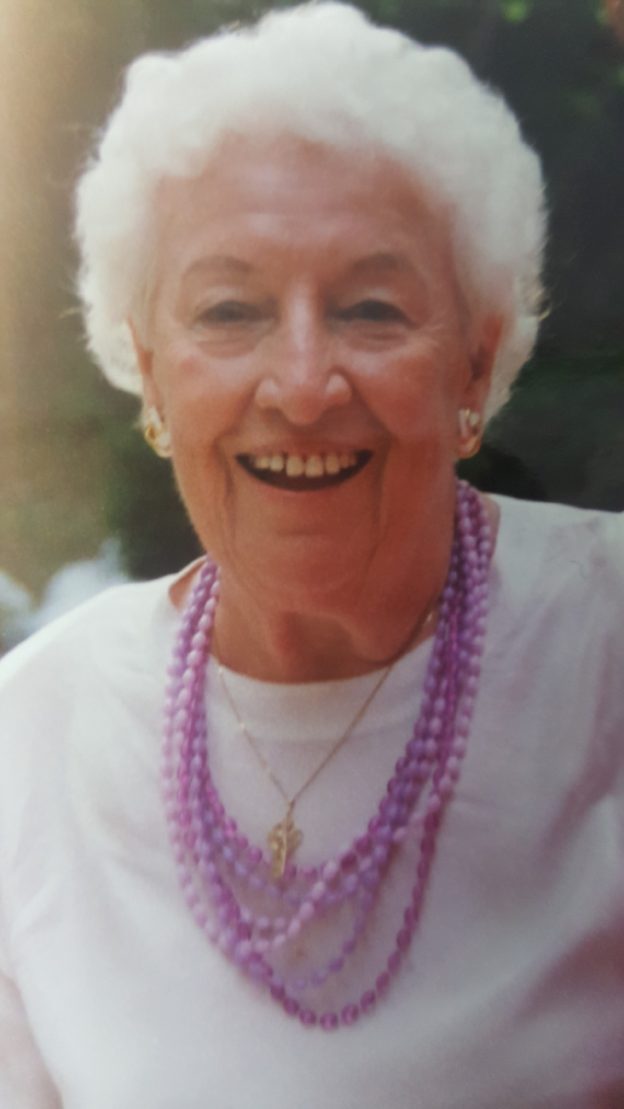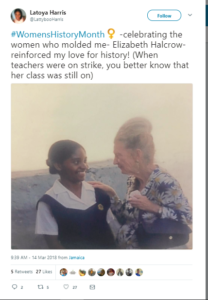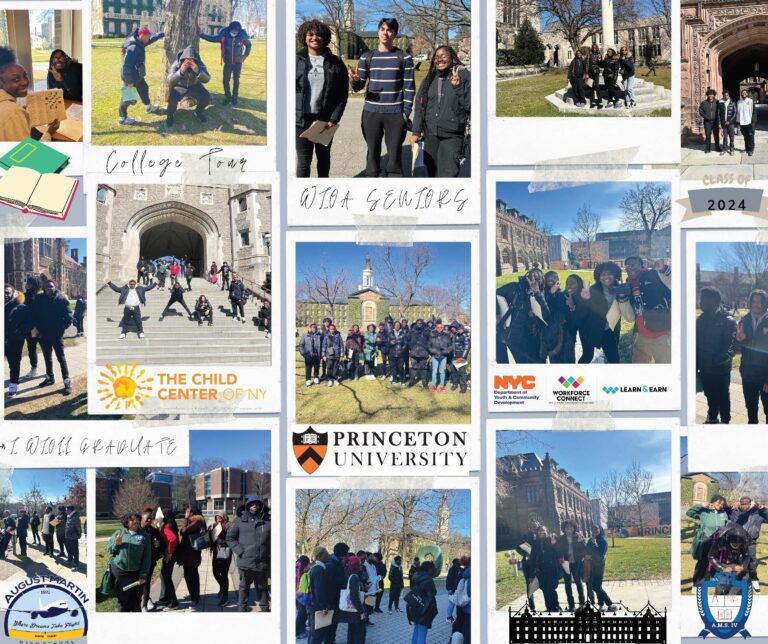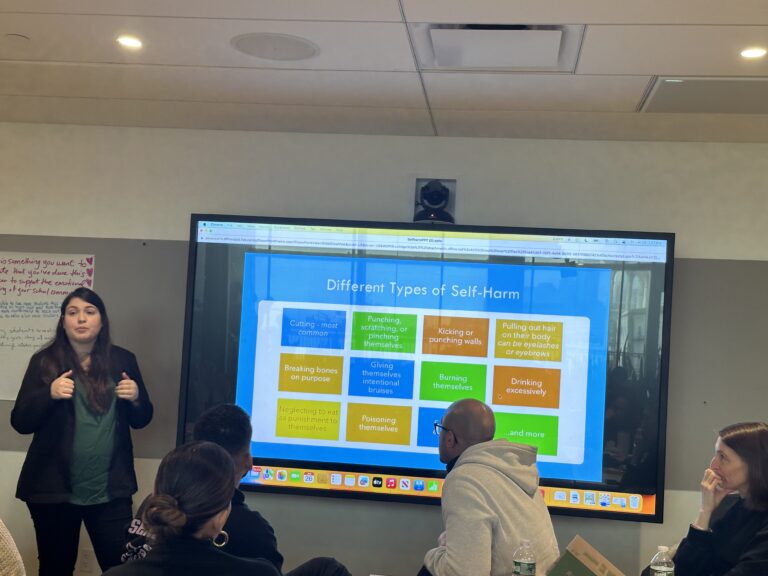
The author’s grandmother, Eleanor, who grew up without a mom present — and was the author’s biggest influence.
By Traci Donnelly
Chief Executive Officer
Women’s History Month is one of those observances that everyone knows about every year, but few people take notice. While that should never be the case, it is especially important that this is not one of those years. Perfectly encapsulating all that’s gone on in the past 12 months, the 2018 Women’s History Month theme is “Nevertheless, She Persisted,” honoring women who fight all forms of discrimination against women. The 15 women being spotlighted make for an inspirational list, and it truly takes my breath away to read about these women’s trailblazing achievements, especially in the face of so many odds and so much adversity.
Scrolling through tweets for #WomensHistoryMonth was even more uplifting. I was moved by girls and women who took to Twitter to pay tribute not only to the Ruth Bader Ginsburgs, but also to lesser known historical figures who speak to them personally (like the African-American mathematician who tweeted about the women of the first graduating class of Spelman College), and to the unsung women in their own lives — their mothers and sisters, teachers and softball coaches. It’s in line with a lesser known part of the #TimesUp movement, which is a commitment to recognize and support the battles of underprivileged women — women in low-paying jobs who are often subject to, but don’t have the resources to fight back against, sexual harassment and pay inequity. For the majority of these women, their single priority is providing for their families in any way they can, as best they can. That is the history of women, and it’s particularly pronounced in the communities The Child Center of NY serves.
The Child Center works in some of the toughest NYC neighborhoods: places that face high rates of crime, poverty, and incarceration and limited opportunities for growth. People often assume that a large part of the problem is the parents. Likely without even realizing it, some believe that the parents in such neighborhoods are absent or neglectful. Because if that weren’t the case, their kids wouldn’t be in this predicament, right? They couldn’t be more wrong.
The Child Center has had the privilege of becoming the provider at four additional Beacon and Cornerstone community centers this past year in under-served communities, like Far Rockaway, Queens, where services like high-quality health care are scarce or nonexistent and the violence is heartbreaking. But in every one of those communities, I am met by parents, particularly mothers, as well as grandmothers, aunts, and sisters in caregiving roles, who show up in more ways than one. They show up at meetings to make their voices heard on the issues that impact their children and their futures; they show up at marches against gun violence, to say enough is enough; they show up to work at minimum wage jobs, moving heaven and earth to get there through snow and sickness because losing that job is just not an option. They show up at parent-teacher conferences. And they show up emotionally for their children, letting them know they are there for them, that their lives matter, and they can have better futures.
Just as the time is up on issues like sexual harassment in the workplace and the gender pay gap, so, too, should the time be up on how we treat some of our society’s most invisible women: the single mothers who live at or below the poverty line but nevertheless persist in almost superhuman ways to raise the next generation to be better off than they were. Women like Giselle, who escaped a domestic violence situation — and forewent economic security — to raise her children in a way that would break the cycle of abuse.
The fact that our society continues to discount these women’s struggles is laid bare whenever budgetary times get tough (and when don’t they?). The first programs to be recommended for the chopping block are almost always those that disproportionately affect struggling single mothers. This year, for example, Governor Cuomo’s proposed budget included a decrease in funding to the NYC Administration for Children’s Services. While most people know ACS for its role in responding to allegations of abuse, the city agency also funds programs that offer a lifeline to families who need extra support in confronting challenges in a safe and constructive way, now and in the future. Giselle was a part of such a prevention program at The Child Center, and what’s so inspiring about her story is not only Giselle’s own triumph and courage, but, more important, the ripple effect it’s already having on her children.
Women like Giselle, and the mothers and other caregivers of Far Rockaway, don’t need to be recognized on a website for Women’s History Month or profiled at a display at Barnes and Noble — but they do need, and deserve, our support.
This year’s Women’s History Month might be coming to its end, but the opportunity — and imperative — to stand up for the mothers who persist in society’s most important job is enduring. In the spirit of the #TimesUp movement, it’s time to tell them that we see you, we hear you — and the time has finally come that we will support you.






